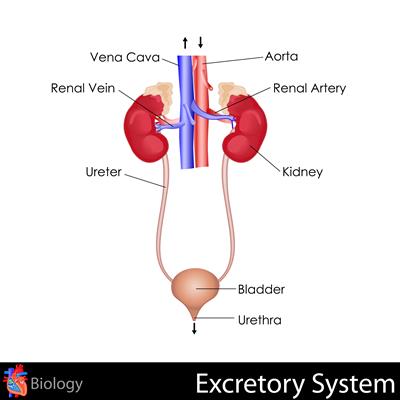
PUMPA - SMART LEARNING
எங்கள் ஆசிரியர்களுடன் 1-ஆன்-1 ஆலோசனை நேரத்தைப் பெறுங்கள். டாப்பர் ஆவதற்கு நாங்கள் பயிற்சி அளிப்போம்
Book Free DemoThe process of excretion in animals
The cells of our body perform a wide range of functions due to which certain waste products are released. These wastes are generally toxic and hence should be removed from the bodies of the living organisms.
The process of removal of wastes that are produces by the cells of the living organisms is known as excretion.
The human excretory system
The organs that are involved in the removal of waste products from the body is known as excretory system.
The various organs which form the excretory system are as follows.
Kidneys:
All the wastes that are thrown out by the cells are transported to the excretory system by the blood. Hence, the blood is filtered to remove these wastes. This filtration is performed by blood capillaries present in the two bean-shaped organs known as the kidneys. When the blood reaches the kidneys, the useful substances are absorbed back into the blood. The wastes that are dissolved in the water are removed as urine. The kidneys receive the blood rich in oxygen from the heart through the renal arteries.

Urinary bladder:
The pouch-like structure which stores the urine produced in the kidneys is known as urinary bladder.
Ureters:
The two tube-like structures which connect the Kidneys and the urinary bladder are known as the ureters. These are the structures which transport the urine produced in the kidneys to the urinary bladder.
Urethra:
The urine which is stored in the bladder is sent out through the opening found at the end of a muscular tube known as the urethra.
Normally an adult human being passes about 1-1.8 L of urine in 24 hrs. The urine produced comprises of \(95\)% of water, \(2.5\)%urea and 2.5% of other waste products.